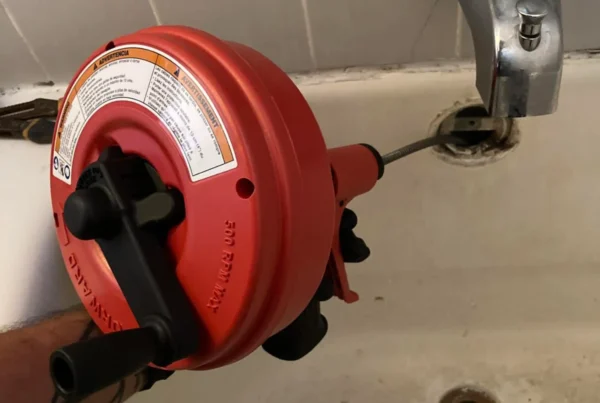A refrigerator is an essential household and commercial appliance that keeps food fresh and prevents spoilage. Whether storing groceries at home or preserving perishable items in a restaurant, keeping your refrigerator in optimal condition is critical. Regular maintenance ensures longevity, reduces repair costs, and maintains energy efficiency. Here are the key ways to keep your refrigerator working like new.
1. Maintain Proper Hygiene
Daily Cleaning Routine
Cleaning your refrigerator regularly is one of the simplest ways to keep it functioning well. Develop a daily cleaning schedule—once in the morning and once in the evening—to remove spills, stains, and odors. Use warm water mixed with a mild detergent to wipe down shelves, drawers, and walls. This routine ensures a clean and fresh environment inside your unit.
Immediate Spill Cleanup
If spills occur, clean them immediately to prevent odors and bacterial growth. Neglected spills can stain surfaces and cause unpleasant smells that are difficult to remove.
Seal Cleaning
Refrigerator seals, also known as gaskets, help maintain airtight conditions. Clean them regularly to prevent dirt buildup that can hinder door closure. Use a damp cloth and mild soap to wipe down the seals, ensuring they remain flexible and functional.
2. Maintain a Consistent Temperature
Monitor Temperature Settings
Temperature fluctuations can compromise food quality and safety. Check your refrigerator’s temperature settings daily. The ideal refrigerator temperature is between 35°F and 38°F (1.7°C and 3.3°C), while the freezer should stay at 0°F (-18°C).
Avoid Overloading
Overloading the refrigerator reduces airflow, leading to inconsistent cooling. Keep items organized and avoid stuffing the unit with too many items. This ensures even temperature distribution and prevents the compressor from overworking.
3. Conduct Quarterly Maintenance
Deep Cleaning
Quarterly maintenance involves a thorough cleaning of the interior and exterior of your refrigerator. Remove all food items, clean shelves and drawers, and check for any hidden residue or mold.
Lubricate Hinges
Apply a small amount of lubricant to the hinges to ensure the doors open and close smoothly. This prevents wear and tear on the hinges, extending their lifespan.
Inspect for Damage
Check for cracks, loose components, or unusual sounds. Addressing minor issues promptly prevents them from escalating into costly repairs. Seek professional help if necessary.
4. Protect from Heat Sources
Avoid High-Temperature Areas
Place your refrigerator away from heat sources like ovens, stoves, or direct sunlight. Excess heat forces the compressor to work harder, shortening its lifespan and increasing energy consumption.
Ensure Proper Ventilation
Maintain at least two inches of space between the refrigerator and the wall to allow adequate ventilation. This helps the unit dissipate heat effectively and prevents overheating.
5. Replace Door Seals as Needed
The rubber door seal plays a crucial role in maintaining the internal temperature by keeping warm air out. Over time, seals can become damaged or lose their flexibility.
Signs of a Damaged Seal
- Difficulty closing the door tightly.
- Moisture buildup inside the refrigerator.
- Increased energy bills due to overworking the compressor.
Timely Replacement
Replace the seal immediately when damaged. This simple fix reduces energy consumption and ensures your refrigerator operates efficiently.
6. Reduce Frost Accumulation
Monitor Frost Levels
Excess frost can form on the refrigerator coils or walls, making the appliance less efficient. Regularly check for frost buildup and defrost when necessary.
Defrosting
Follow the manufacturer’s guidelines for defrosting your refrigerator. Unplug the unit, remove the frost manually, and allow the refrigerator to dry completely before restarting.
7. Schedule Professional Checkups
Regular Inspections
Hiring a professional technician for routine inspections ensures that any potential issues are detected early. A professional can assess the condition of the compressor, coolant levels, and electrical connections.
Preventive Repairs
Addressing minor problems during regular checkups prevents major breakdowns and extends the refrigerator’s lifespan. A professional can also provide maintenance tips tailored to your specific model.
8. Additional Tips for Optimal Performance
Organize Food Properly
Arrange items in your refrigerator to allow for proper airflow. Avoid blocking air vents with large containers or bulky items.
Keep the Exterior Clean
Dust and debris can accumulate on the condenser coils, causing the compressor to overheat. Clean the coils every six months using a vacuum or a soft brush.
Check the Water Dispenser and Ice Maker
If your refrigerator has a water dispenser or ice maker, clean and replace filters as recommended by the manufacturer. This ensures a steady flow of clean water and ice.
Benefits of Regular Maintenance
- Enhanced Energy Efficiency: A well-maintained refrigerator consumes less energy, reducing your utility bills.
- Prolonged Lifespan: Regular care prevents wear and tear, allowing your appliance to last longer.
- Improved Food Quality: Consistent cooling preserves the freshness and nutritional value of stored food.
- Fewer Repairs: Early detection of issues saves money on costly emergency repairs.
By following these maintenance tips and scheduling regular professional checkups, your refrigerator will remain in excellent working condition for years to come. Prioritize care for your appliance to ensure it serves you efficiently and keeps your food fresh and safe.



